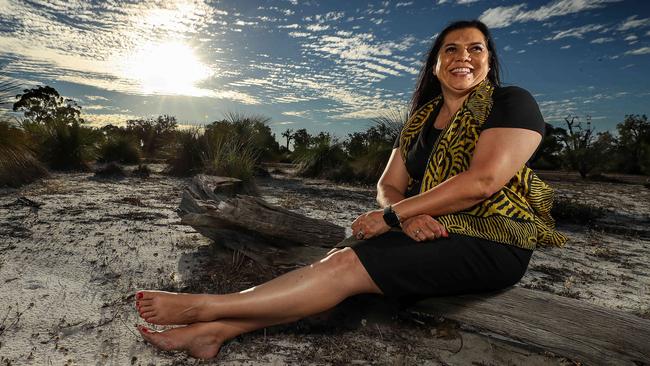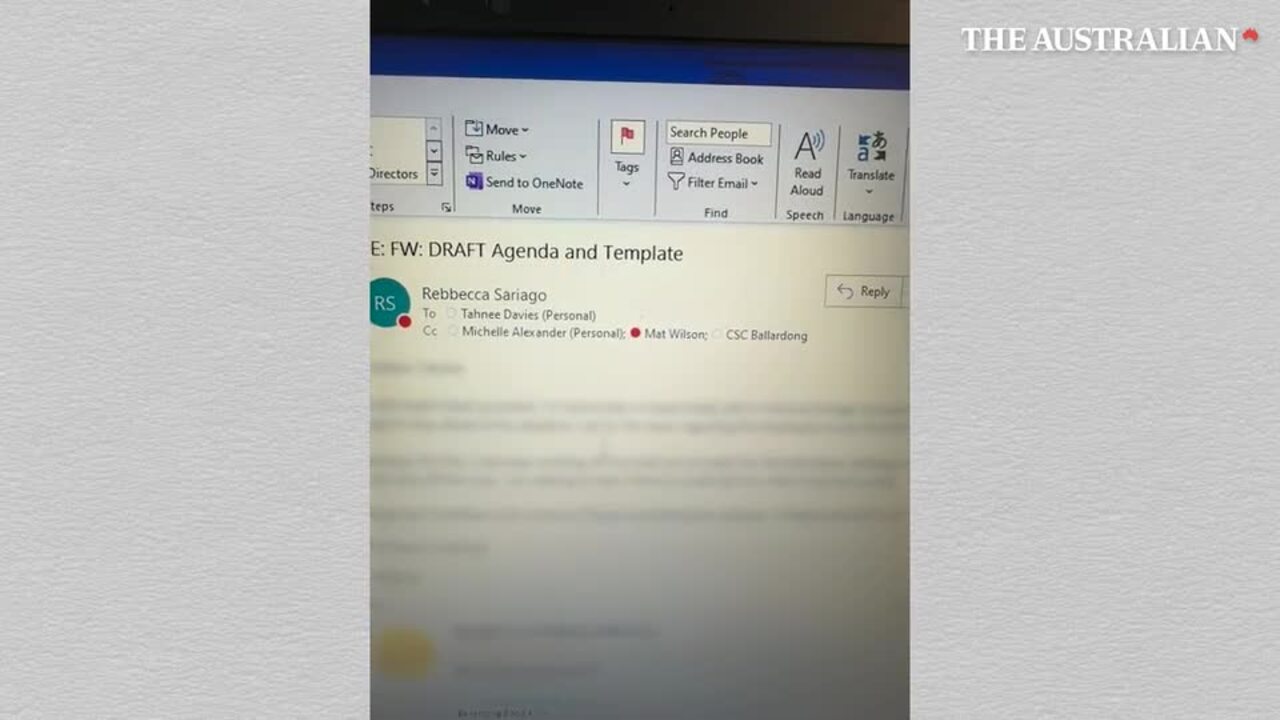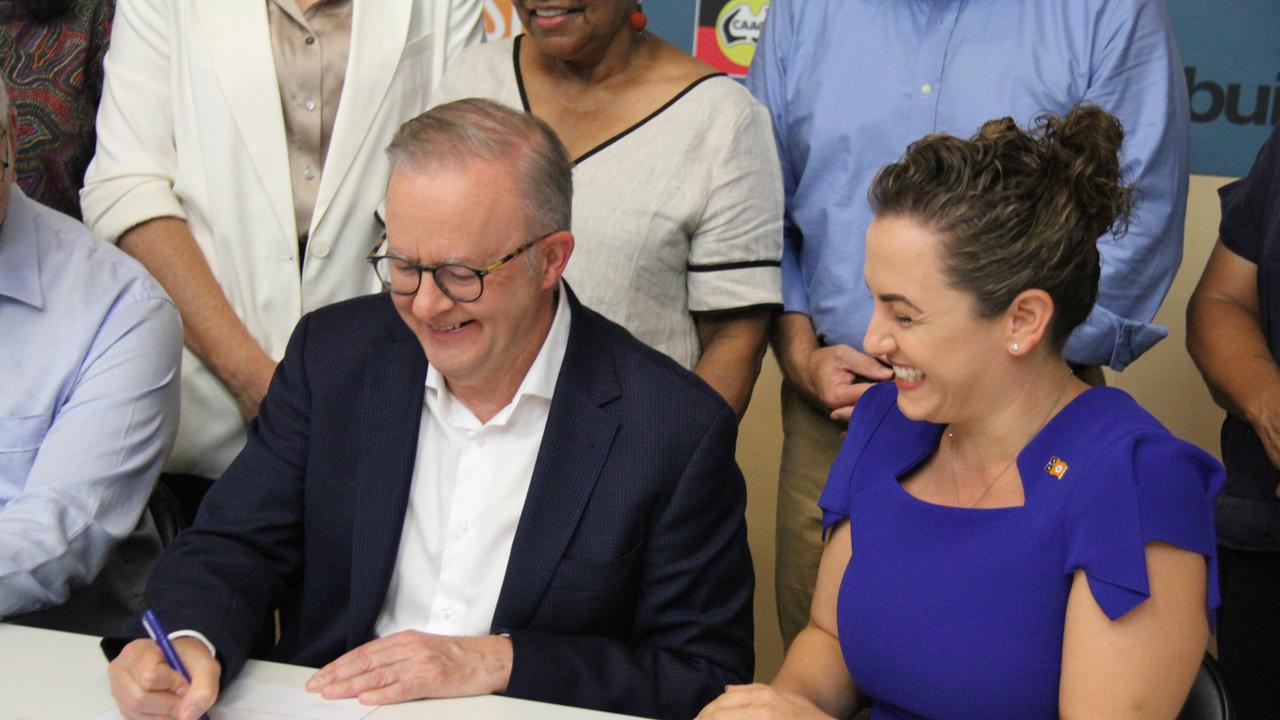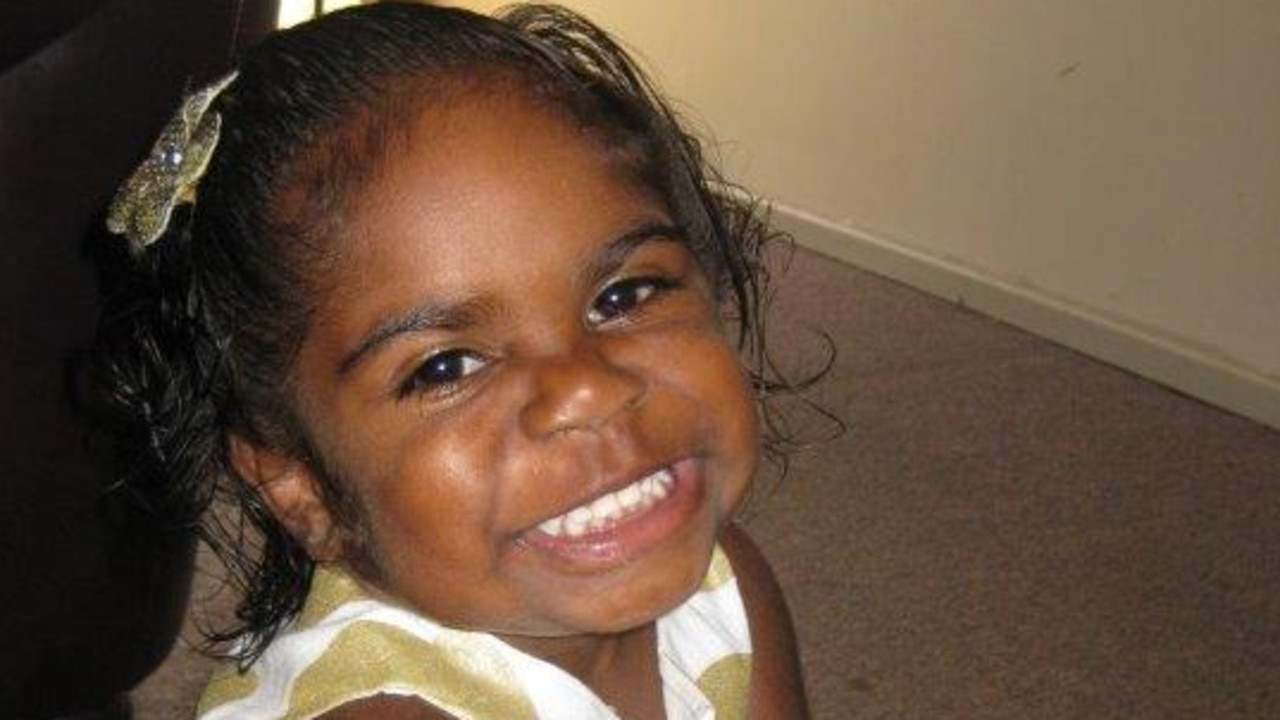Land council behind biggest native deal caught spying on rivals
WATCH | A video shows how South West Aboriginal Land and Sea Council was spying on the emails of rival corporations despite receiving $2m in federal funding this year.

The Aboriginal body that struck Australia’s biggest native title settlement continues to receive about $5m a year in funding after it was caught spying on the emails of rival corporations that it is paid to serve and assist.
The Australian has confirmed that the commonwealth – via the National Indigenous Australians Agency – has provided almost $6m to the Perth-based South West Aboriginal Land and Sea Council since 2022, including about $2m for the current financial year when it was already established that the land council had been accessing the emails of separate Aboriginal corporations with whom it effectively competes for grants.
The NIAA is scheduled to provide about $4m more to the SWALSC over the next two years, a total of $10.26m over five years.
The SWALSC is also guaranteed funds annually from the Noongar Boodja Trust, which was established in 2021 to fund the landmark native title settlement over Perth and the southern third of Western Australia. The $1.3bn land and cash deal, first proposed by Liberal premier Colin Barnett, had bipartisan support and is considered by some constitutional experts to be Australia’s first treaty.
The deal has had a rocky start. The SWALSC has declined to reveal what disciplinary action it took against its chief executive, Vanessa Kickett, after a board-ordered investigation found she regularly asked a subordinate to access the emails of separate and autonomous Aboriginal corporations then to report back to her on those emails.
Ms Kickett remains the council’s CEO.
NIAA told The Australian: “This is a matter which is being managed between the SWALSC and the regional corporations.”

The SWALSC was able to access the emails of six newly established regional Aboriginal corporations in WA’s southwest because it was their designated IT provider, bookkeeper and provider of other services.
This was not negotiable as part of a five-year plan to give the SWALSC jobs to do after it successfully negotiated the landmark native title settlement. However, the email scandal is one factor contributing to tensions between the six corporations and the SWALSC.
The Australian has been told at least three of the corporations have discussed how it might be possible to cut ties with the land council without breaching the strict terms of the 2021 agreement. In short, those corporations were considering whether they could break free without being financially worse off.
This week, one of the corporations – Ballardong – announced in its annual report that it had found a way to “transition away” from the land council immediately. It will do its own IT, finances and communications.
The Australian has obtained a video given to the email spying investigation, police and circulated among Noongar families that shows the moment a Ballardong employee realised the SWALSC was in her emails. Rebecca Sariago, who declined to comment when asked by The Australian, is the narrator of the short clip filmed on January 31. The video shows that unbeknown to her, an email she sent to her then boss – Ballardong chief executive Matt Wilson – was also sent to an address controlled in-house by the SWALSC.
The subsequent investigation substantiated this. However it concluded this was a “clumsy attempt” by the SWALSC to direct emails that it would have received anyway to a second address that it controlled – csc.ballardong@noongar.org.au.
The investigation’s strongest findings included that Ms Kickett had regularly instructed a junior employee to access the emails of employees of the other corporations between about May and August 2023.
Ms Kickett was also found to have instructed the junior employee to access the emails of the CEO of one of the six corporations in August 2023. That is because Ms Kickett knew that Wagyl Kaip Aboriginal Corporation chief executive Lisa Smith had written to other CEOs in the regional corporation network expressing concerns about the quality of the services provided by Ms Kickett’s organisation.
Ms Kickett already knew what was in the email because somebody sent the content to her but – according to the investigation findings – she wanted to know who it had been sent to, including any blind copies.
The investigation found Ms Kickett had breached policy and acted in a manner that was “unprofessional, undermined confidence in SWALSC, unfair, disrespectful, an exercise in poor judgment and unethical”.
One of WA’s most respected Indigenous authorities, Noongar leader Carol Innes, said the southwest land deal was designed to support and assist the six new regional corporations through the challenges of rolling out a big and complex agreement, “however that looks to have fallen short if the issues highlighted are the case”.
Ms Innes worked for 16 years to achieve the southwest land deal. She is among supporters of the agreement who believe it can open the door to economic independence for Noongar people if early problems are addressed properly. She said many Noongar elders died waiting for the agreement and its potential remains.
“While the problems highlighted are far from ideal, they do not mean that the entire agreement is in danger; in fact the agreement anticipates situations like this and has provisions to work through them,” Ms Innes said.
“There will be issues like these that arise from time to time, but I think we were able to put in place a system that is robust enough to deal with them and improve.”
The SWALSC has previously told The Australian that it was implementing – or was in the process of implementing – most of the recommendations of the investigation into the email spying scandal. A spokesperson for the land council pointed out that the report also found some positive aspects of its work and “we are working to implement this across the corporation”.



